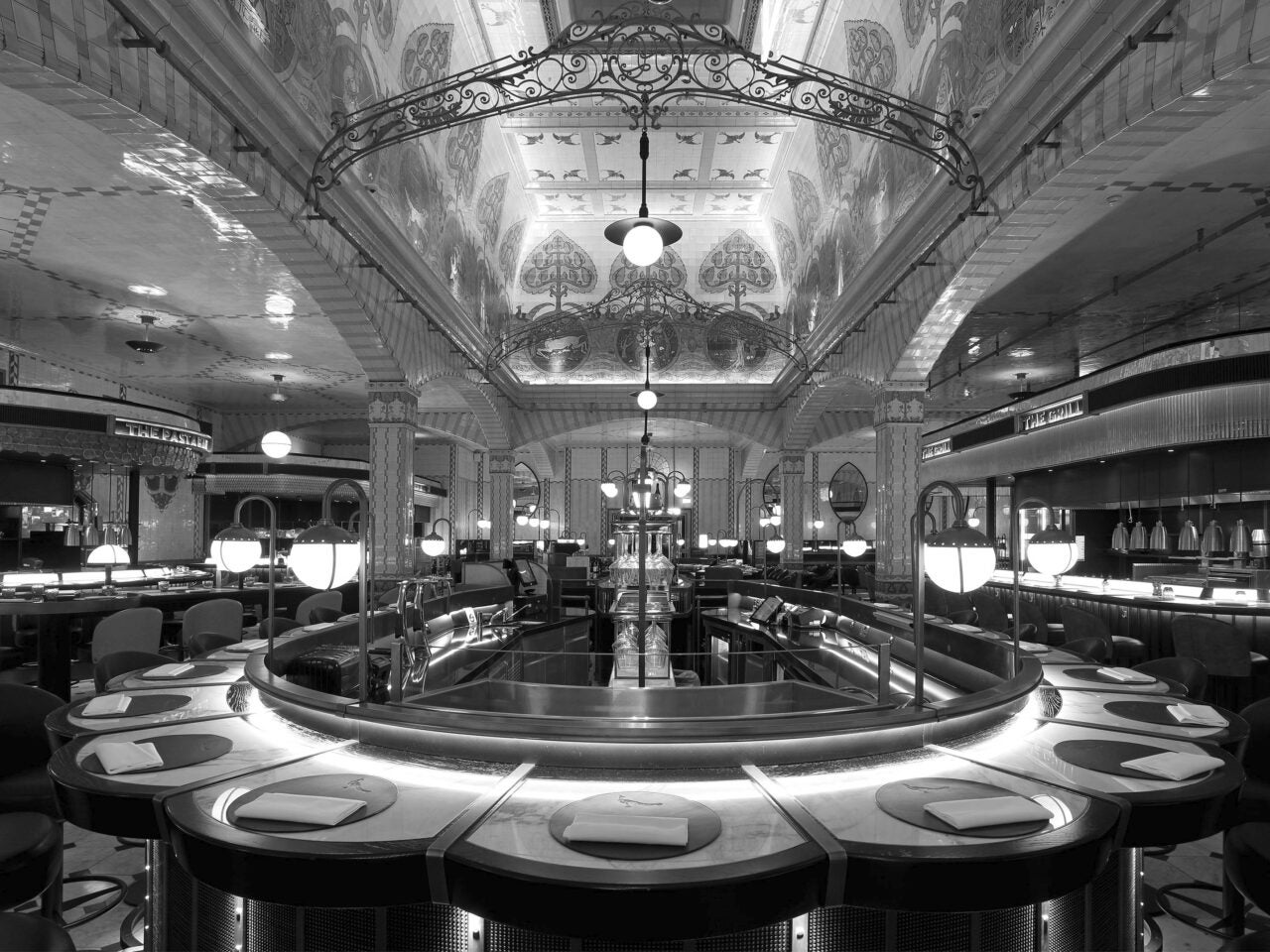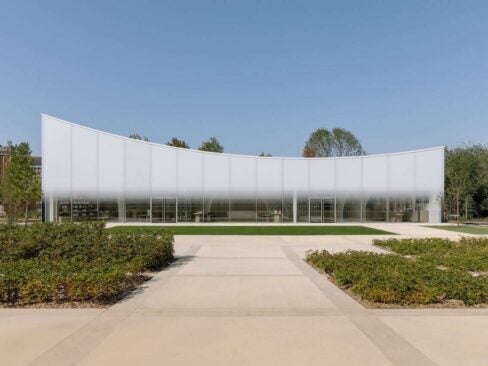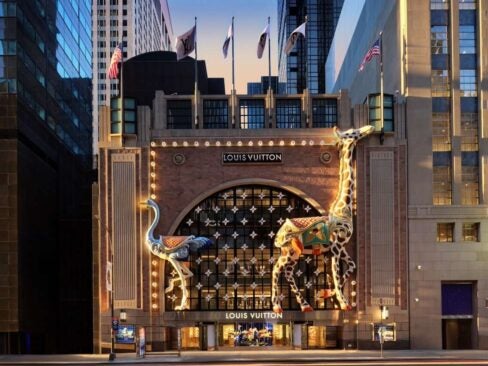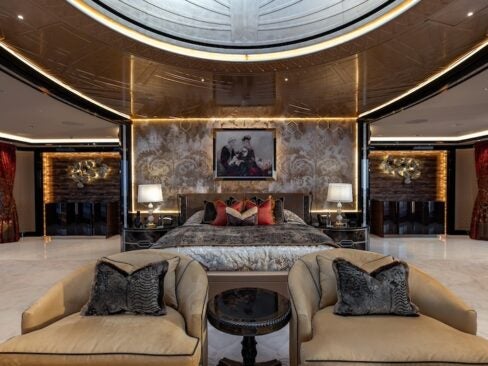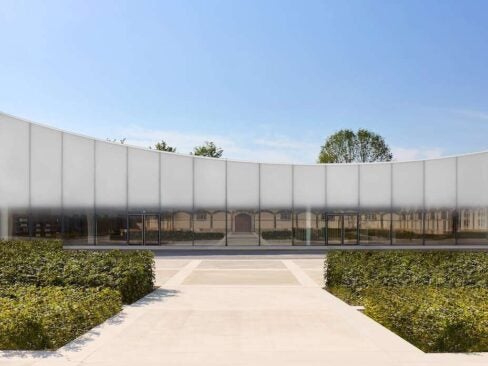Simon Rawlings is the creative director at David Collins Studios, one of the world’s most influential design firms. The company, which celebrates its 35th anniversary this year, works across hospitality, residential, retail, maritime and product sectors.
Studio launches include Nobu Portman Square in London, the new Harrods menswear departments and Chocolate Hall, and The David Beckham suites at Sands Macau. David Collins Studios is also currently working with Cunard on its newest ship along with multiple residential developments across Hong Kong.
David Collins Studios is coming up to 35 years as leaders in the hospitality design industry and you must have seen many changes. How do you think luxury design has changed over that period?
Luxury has become much more accessible, it’s now much harder to define, and encompasses so many different things. Typically, when we set out, luxury could be deemed as silverware, lavish finishes, plush upholstery but now those preconceptions have been broken and luxury can be found everywhere and in everything.
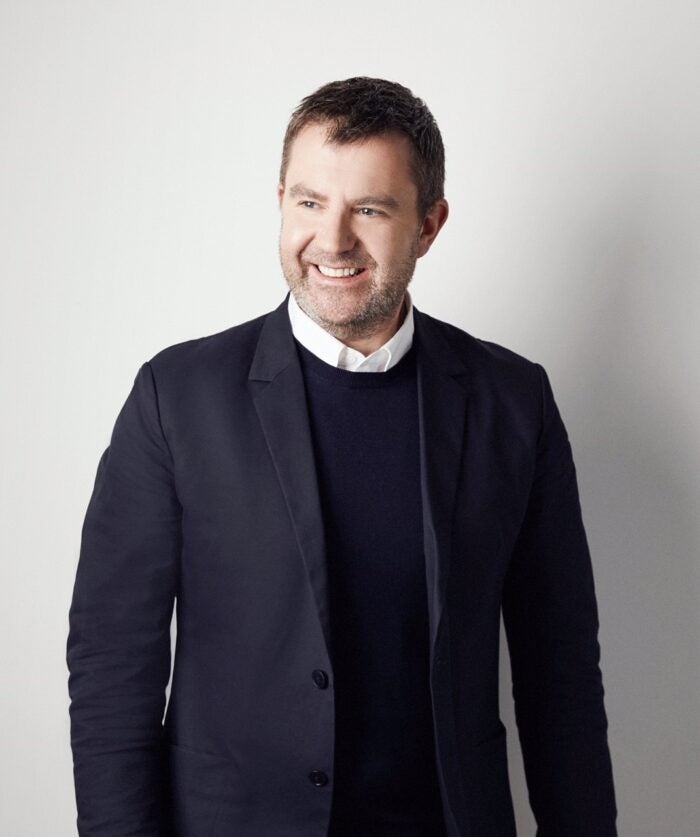
Simon Rawlings is the creative director at the studio.
What do you think the aesthetic impact of Covid-19 will be?
I’m really hoping there will be no post-Covid look. The big changes will be operational ones, I do believe a lot of the new systems being implemented will remain, as they work well.
Do you think luxury consumers are looking for nostalgia/security from design now or will they seek new experiences?
Both, it’s always a bit of both – designs which are 100 percent experiential and new are always difficult to accept, the minute a touch of familiarity is super-imposed, the design becomes much more engaging. I always try and marry historic references with a nostalgic feeling, whilst firmly creating designs for the future that will last. This seems to work.
Do you think there are any positives to come from this time?
I really hope the world becomes less city-centric. I feel that the power and the draw of cities was becoming too much. This period has proven that a strong community works well, neighborhoods are thriving as well as the smaller towns. Also, the speed of imagination throughout the food and hospitality industry has been astounding, and some great ideas and offers have come out of this. To be able to get London food delivered to the remote countryside really has been brilliant.
It is estimated that Gen Z will make up 60 percent of luxury consumers by 2026, how do you think this will alter hospitality design, or will it?
These consumers will have even higher standards and expectations than millennials. I think that budget travel as we know it will probably be reduced a lot post-Covid, and more thoughtful, experiential vacations will be sought.
Do you think personal relationships will be more important than ever and if so, how do you see this playing out in design?
I think personal relationships have and always will be important – the effect these have on design if very much embedded into the brief, the customer or the type of design. More interesting types of hospitality are always surfacing, and I think that personally hosted experiences will definitely be on the rise.
What are you most excited for?
I am excited to get things back to normal, I believe we will return to almost where we left off, with hopefully a few improvements. I don’t necessarily think that there will be any dramatic ‘new normal’ – but there will be a sense of calm and relief which will enable positive creativity.
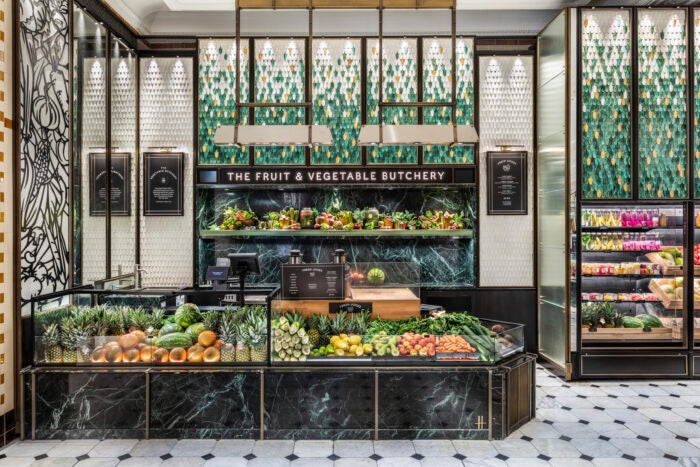
The famous Food Hall at Harrods, London / ©David Collins Studio
Patricia Kahn-Saunders is a communications director specializing in luxury, travel, and purpose-driven brands.





